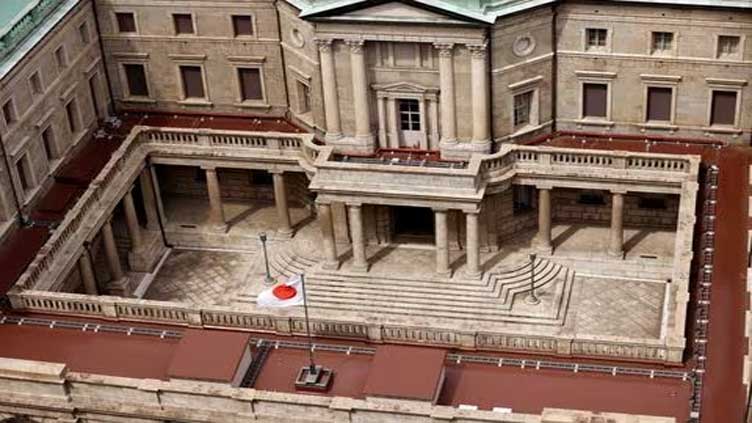BOJ policymaker says premature to debate exit from negative rate policy

Business
BOJ policymaker says premature to debate exit from negative rate policy
TOKYO/MATSUYAMA (Reuters) - Bank of Japan board member Seiji Adachi said it was premature to debate an exit from negative interest rates, suggesting it might take until well into next year to determine whether wages would rise enough to pull out of ultra-loose monetary policy settings.
The remarks on Wednesday by Adachi, who is considered among the board members with a dovish policy bias, came amid growing market expectations the BOJ could pull short-term interest rates out of negative territory as early as January.
Adachi said the BOJ must wait for clear signs that prices and wages would rise in tandem and keep inflation sustainably at its 2% target before ending negative interest rates.
"I personally feel we're not there yet," he told a news conference after meeting business leaders in the western Japan city of Matsuyama when asked whether conditions for debating a rate hike have fallen in place.
Sufficient data on the outcome of next year's annual wage negotiations between firms and unions, which is key to whether wages will rise sustainably, would not be available until after the April 2024 start of the next fiscal year, Adachi said.
"Since this is a factor that may affect a very important policy decision, I would err on the side of caution," he said, suggesting that debate on ending negative rates was unlikely to happen until well into next year.
Most big companies settle annual wage talks with unions at about mid-March each year, serving as a benchmark for wage negotiations among smaller firms.
Adachi said Japan has yet to see a positive wage-inflation cycle, in which wages and inflation rise together, kick-off. The BOJ can start debating an exit strategy only when the chance of such a cycle emerging heightens, he added.
But Adachi said the BOJ did not necessarily need to wait until inflation-adjusted wage growth turns positive for it to normalise monetary policy.
"For now, it's appropriate to patiently continue with our monetary easing," Adachi said in a speech earlier on Wednesday.
The remarks underscore uncertainty over how soon the BOJ could end its negative rate policy, under which it applies a 0.1% charge on a small pool of excess reserves, and a framework called yield curve control (YCC) that guides the 10-year bond around 0%.
His comments also highlight how there is no consensus within the board on the desirable timing of an exit. Hawkish member Naoki Tamura in August signalled a chance of ending negative rates early next year, saying Japan's inflation was already "clearly in sight" of the BOJ's target.
The BOJ loosened its grip on long-term yields by tweaking YCC in July and October, moves markets saw as laying the groundwork for an exit from ultra-loose policy.
With inflation exceeding its 2% target for more than a year, many market players expect the BOJ to end negative rates and YCC next year, with some betting on a move as early as January.


